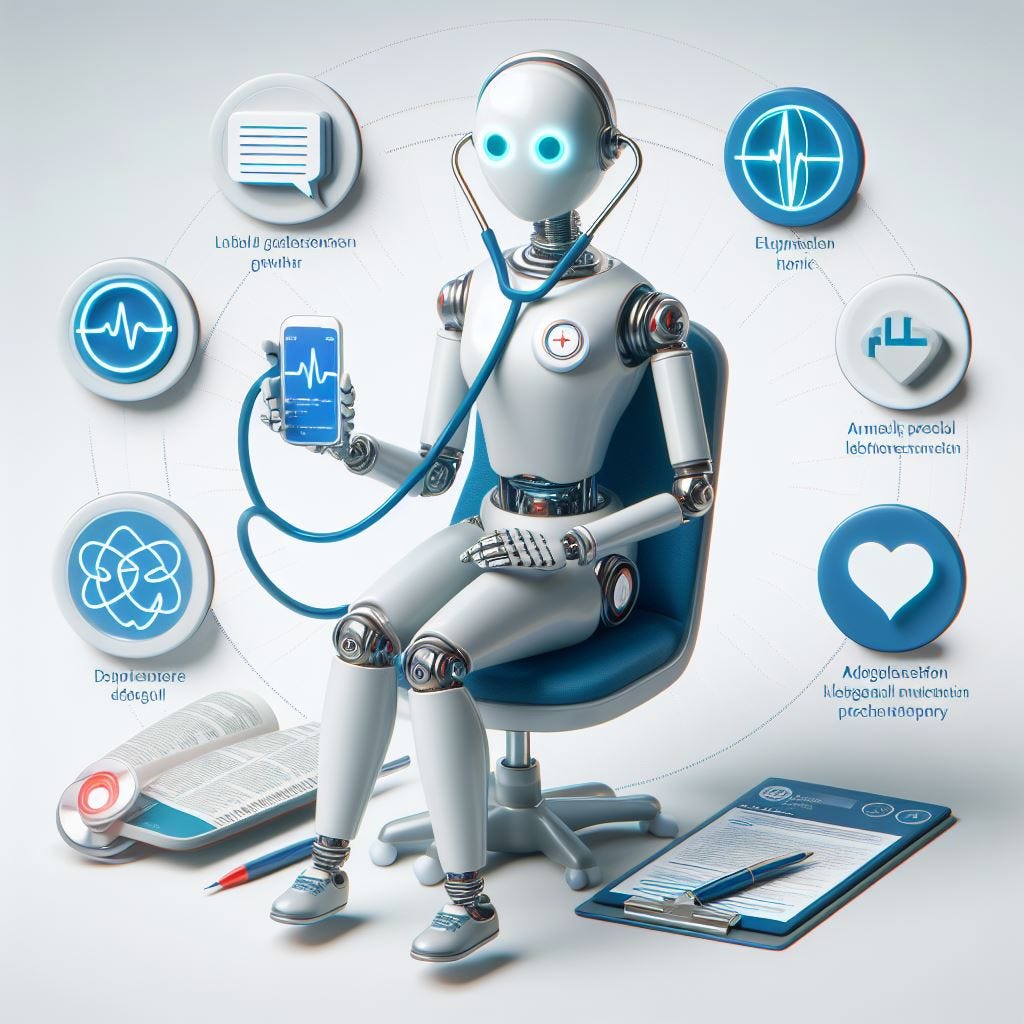AI's Promise and Perils: Racing Towards an Uncertain Future
Generative AI Upends News and Medicine; Businesses Navigate Risks to Reap Benefits
AI and misinformation pose 'existential threat' to local news
- AI and online misinformation creating “existential crisis” for local journalism industry
- Sen. Blumenthal warns rise of AI content recreation and declining revenues leading to newspaper declines
- Media executives say AI summarizers depriving outlets of profits needed to support reporting
- Blumenthal proposed AI regulation but bill has stalled; NYTimes sued Microsoft, OpenAI over AI trained on its stories
- Experts say AI may aid newsrooms but could force more layoffs, less original content
Generative AI in 2024: Disruptions and Challenges
- Tech giants will continue to dominate generative AI landscape
- Surge anticipated in adoption of generative video for marketing
- AI to revolutionize software creation but risks of misuse will emerge
- Multimodal AI to enable more natural human-computer interaction
- AI digital assistants expected to enhance workplace productivity
- India-specific AI solutions to address limitations of horizontal models
- Chip shortages could obstruct AI development
- Governance frameworks needed to ensure responsible and ethical AI use
HEADLIME IS THE GO-TO GPT-3 TOOL FOR MARKETERS.
WRITESONIC IS ONE OF THE BEST ARTIFICIAL INTELLIGENCE-POWERED COPYWRITING GPT-3 TOOLS.
Google's AI chatbot shows promise in medical diagnosis
- Chatbot AMIE matches/beats doctors in diagnosing simulated patients
- Shows higher accuracy across specialties, scores high on empathy measures
- Still experimental: next steps include evaluating model biases, real patient testing
- Could help democratize healthcare but can't replace human relationships in medicine
- Commercial motives and patient privacy also noted concerns
Barriers Slow Corporate Adoption of AI Tools
- Cyber threats, talent gaps, compliance uncertainty hindering AI adoption
- Unclear or low-value use cases yield limited organizational impact
- Immature AI models risk unreliable outputs
- Building internal skills and finding high-impact applications are key first steps
- Continuous learning needed as dynamic AI landscape evolves
AI and misinformation pose 'existential threat' to local news
U.S. Senator Richard Blumenthal warned this week that artificial intelligence and online misinformation have created an "existential crisis" for the local news industry. In a Senate hearing, Blumenthal said the rise of AI technologies that can easily reproduce content, coupled with declining advertising revenues and social media's facilitation of content sharing, have led to a loss of over one-third of American newspapers in the last 20 years.
Media executives testified that AI summarization models are pulling readers away from original reporting, depriving news outlets of profits needed to support journalism. Blumenthal has proposed legislation to regulate AI companies, but the bill has seen little progress. The New York Times recently sued Microsoft and OpenAI over the use of its content to train AI models.
While painting a dire outlook, some experts noted news outlets have also utilized AI to aid reporting and open new revenue sources. But the head of a news media trade group said unchecked AI proliferation will likely force further newsroom layoffs and less original content production, exacerbating journalism's existential crisis.
Generative AI in 2024: Disruptions and Challenges
In 2024, generative AI will continue to be dominated by major US tech giants like Google, posing acquisition challenges for Indian startups seeking to compete. Applications using generative video are expected to surge, especially in marketing, though costs remain high. Software creation will be revolutionized through no-code startups, but risks of misuse and cyber threats will arise. Multimodal AI models that integrate different data types will enable more natural human-computer interaction. AI digital assistants are anticipated to enhance workplace productivity.
Vertical AI solutions tailored for India-specific needs may emerge to address limitations of horizontal models. Applications in creative industries will transform art, music and design. However chip shortages could obstruct AI development. As generative AI proliferates, ethical implications regarding privacy, security, and societal impact will necessitate governance frameworks to ensure responsible use.
Google's AI chatbot shows promise in medical diagnosis
Researchers have developed an AI-based chatbot that can converse with simulated patients, take medical histories, and provide diagnostic possibilities that match or exceed human doctor performance.
Dubbed AMIE, the chatbot utilizes a large language model trained on medical datasets and self-generated dialogues playing doctor and patient roles. In tests with actors portraying 149 clinical scenarios, AMIE demonstrated greater diagnostic accuracy across specialties and scored higher on measures of conversation quality like empathy.
The authors caution that AMIE is experimental and lacks real patient testing, but argue it could help democratize healthcare if further developed responsibly. Next steps include evaluating model biases and testing with actual patients. While promising, experts note medicine requires human relationships, not just information gathering. So while capable of quality conversation, replacing doctor interactions entirely poses risks if commercial motives override patient privacy.
Barriers Slow Corporate Adoption of AI Tools
Though eager to capitalize on artificial intelligence, companies face obstacles that hinder rapid AI deployment, per a recent survey. Key barriers include escalating cyber threats from vulnerabilities in emerging AI apps, talent shortages in the scarce AI expert space, and cautious regulatory stance while policy guidance develops.
Additional roadblocks are unclear or narrowly defined use cases that yield minimal organizational impact for the investment, and immature AI models that risk unreliable "hallucinated" outputs. Compliance uncertainties in regulated sectors also give some companies pause.
Experts say selecting high-value AI applications and building internal skills and staff are critical first steps. As understanding of AI security and policy matures, maintaining an "AI-first" mindset will help firms adopt quickly when barriers recede. But the dynamic technology landscape demands continuous learning, not a one-time AI adoption event.










